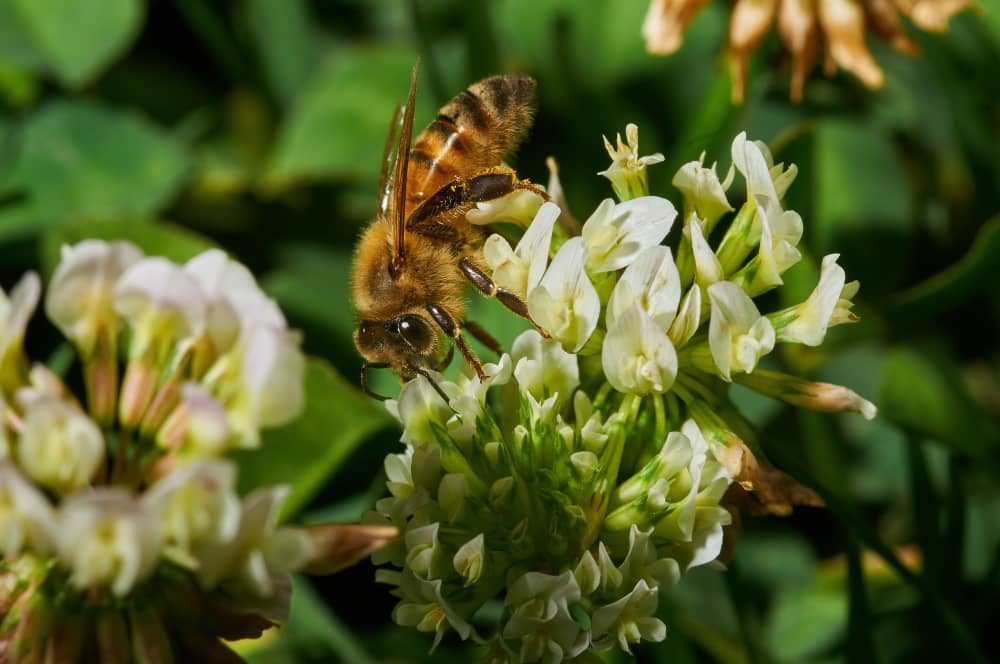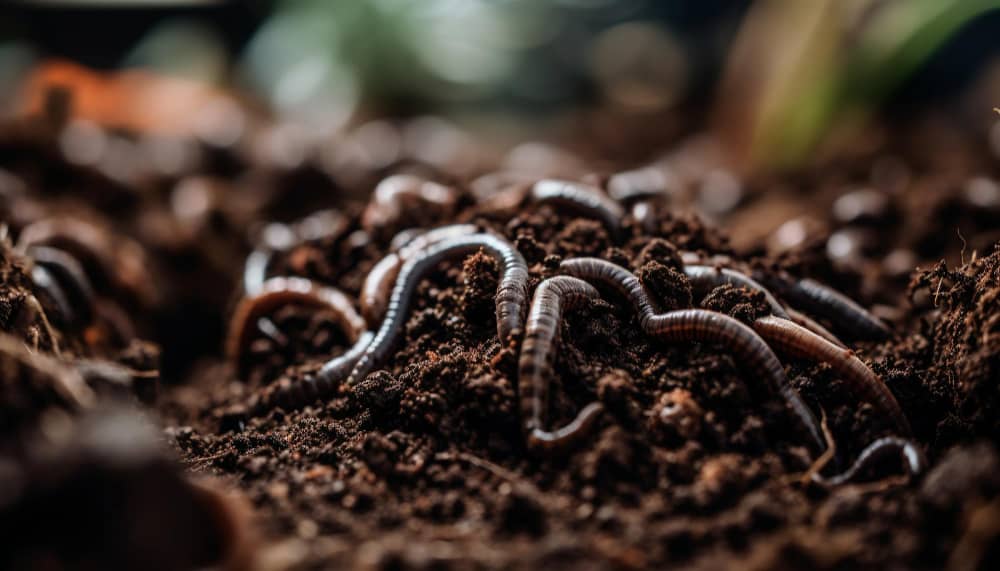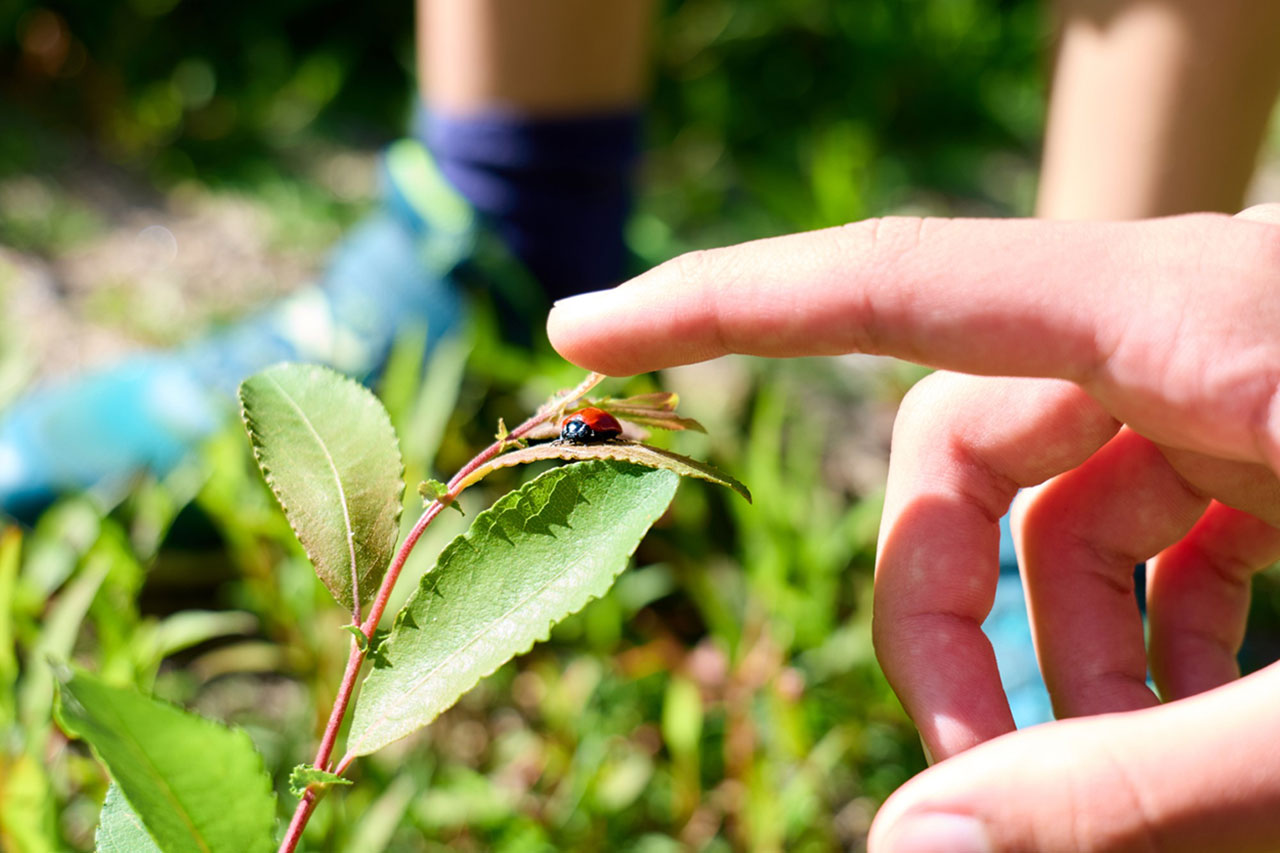Beneficial insects are insects that help your garden thrive and drastically reduce the amount of work that you have to do. These insects can provide natural pest control, improve soil quality, pollinate plants, and cycle nutrients. In other words, beneficial insects are like the superheroes of the insect world!
Gardening can be an enriching experience. Not only do you get to create a beautiful outdoor space, you can also enjoy the fruits of your labor. But something else makes gardening even more enjoyable: the incredible world of beneficial insects.
But what exactly are beneficial insects? What are the benefits that they provide? And more importantly, how can you attract them to your garden? This article will explore the answers to these questions and more so that you can unleash the power of nature in your own garden!
A healthy garden is balanced and free of harmful pests. The best way to achieve this state is by incorporating beneficial insects into your garden. Natural pest control is one of the most significant benefits of beneficial insects, as they can keep pests from damaging your plants.
Most beneficial insects also play a role in improving soil quality. They do this by providing a natural fertilizer source and helping break down organic matter. This helps keep the soil healthy and ensures plants get the nutrients they need to grow.
Pollinating plants is another important role that beneficial insects play. Pollinators such as bees and butterflies are essential for growing flowers and vegetables. Without them, many plants wouldn’t be able to reproduce and grow.
Finally, beneficial insects can also help with nutrient cycling. By breaking down dead plant material, beneficial insects help to keep nutrients in the soil and prevent them from being lost. This is important for the health of your plants and the environment as a whole.

Beneficial Insects for a Healthy Garden
Now that we’ve discussed the benefits of beneficial insects let’s look at some of the most common types. Ladybugs, ground beetles, lacewings, hoverflies, spiders, praying mantis, tachinid flies, bees, parasitoid wasps, and assassin bugs are all beneficial insects in your garden.
But how do you attract these beneficial insects to your garden? Here are some tips: plant native wildflowers, create insect habitats, grow flowering herbs and vegetables, let some garden pests go, and avoid pesticides.
Native wildflowers are a great way to attract beneficial insects to your garden. Not only do they add beauty to your outdoor space, but they also provide a natural habitat for beneficial insects.
Creating insect habitats is another excellent way to attract beneficial insects. This can be as simple as leaving an area of your garden undisturbed or providing shelter in the form of logs or stones.
Gardens with flowering herbs and vegetables are also great for attracting beneficial insects. These plants provide both a food source and shelter for the insects.
Finally, it’s important to let some garden pests go. Beneficial insects are natural predators of garden pests, and by allowing some of the pests to remain, you’re providing a food source for the beneficial insects.
It’s also important to avoid using pesticides. While they may seem like an easy solution, they can harm beneficial insects.
Beneficial insects are essential for a healthy garden. They provide natural pest control, improved soil quality, pollination of plants, and nutrient cycling. Some of the most common beneficial insects include ladybugs, ground beetles, lacewings, hoverflies, spiders, praying mantis, tachinid flies, bees, parasitoid wasps, and assassin bugs. You can invite beneficial insects into your garden by incorporating native wildflowers, establishing insect-friendly spaces, cultivating flowering herbs and vegetables, and refraining from using pesticides. By following these suggestions, you can harness the potential of nature within your backyard!

Benefits of Beneficial Insects
Nature provides us with an incredible network of interactions between different species. Beneficial insects are critical members of this network, providing multiple benefits. Let’s take a closer look at how beneficial insects can help create a healthier garden.
Improved Soil Quality: Beneficial insects like ground beetles, earthworms, and ants help aerate and enhance soil quality by loosening and breaking up the soil. This helps to provide a better environment for plant roots and can help improve water drainage.
Natural Pest Control: Beneficial insects can also provide natural pest control by preying on other common garden pests such as aphids, beetles, caterpillars, and grubs. Some beneficial insects, such as ladybugs, lacewings, and hoverflies, are particularly effective at controlling large populations of pests.
Pollination of Plants: Beneficial insects like bees, butterflies, and other pollinators are necessary for plant pollination. Without pollinators, plants would not be able to reproduce. Pollinators are also keystone species, meaning they are essential for the stability of entire ecosystems.
Nutrient Cycling: Beneficial insects like earthworms, ants, and beetles help to cycle nutrients back into the soil, providing essential nutrients for plants. This process helps to increase soil fertility and can help to improve crop yields.
In addition to the benefits, beneficial insects can help keep other garden pests in check, such as slugs, cutworms, aphids, and flea beetles. This helps to ensure that these pests do not damage plants and can help to keep gardens looking healthy.
The list of benefits of beneficial insects goes on and on. Including beneficial insects in your garden can help create a healthier and more productive environment.
Common Beneficial Insects
Beneficial insects can play a huge role in maintaining a healthy garden, and much of the success of a garden can depend on the presence of these helpful insects. Beneficial insects can be found in many different shapes and sizes, and each one plays a vital role in the garden ecosystem. To maximize the potential of your garden, you’ll want to attract as many beneficial insects as possible. Here are some common beneficial insects that you can expect to find.
Ladybugs are perhaps the most recognizable beneficial insects and a favorite among gardeners. Ladybugs, which are small and brightly colored, are known for their voracious appetite for garden pests like aphids, mites, and other insects with soft bodies. Additionally, ladybugs play a significant role in pollination by aiding in the proper fertilization of plants.
Ground beetles are another beneficial insect that helps keep the garden balanced. These beetles feed on various garden pests, including slugs, snails, caterpillars, and other soft-bodied insects. Ground beetles can be found hiding under rocks, logs, and other debris, so keeping these areas free from debris is essential to encourage their presence.
Lacewings are one of the most useful beneficial insects for controlling garden pests. These delicate-looking insects are voracious predators of aphids, mites, and other tiny garden pests. Lacewings also pollinate, helping to ensure that plants have the proper fertilization.
Hoverflies are another beneficial insect found in and around the garden. These flies feed on many garden pests, such as aphids and caterpillars, and their larvae can help keep garden pests under control. Hoverflies are also essential pollinators, helping to ensure that plants are properly fertilized.
Spiders are also beneficial when it comes to keeping garden pests at bay. Spiders feed on various insects, including caterpillars, aphids, and other tiny garden pests. They are also essential for pollination, helping to move pollen from flower to flower.
Praying mantises are one of the most recognizable beneficial insects in the garden. These giant, slow-moving insects feed on various garden pests, including caterpillars, aphids, and beetles. Praying mantises are also essential pollinators, helping to ensure that plants are properly fertilized.
Tachinid flies are another beneficial insect that can be found in the garden. These tiny flies feed on common garden pests, such as caterpillars, aphids, and other small insects. They are also essential pollinators, helping to move pollen from flower to flower.
Bees are perhaps the most important beneficial insects for any garden. These essential pollinators help ensure that plants are adequately fertilized; without them, the garden’s success would be significantly reduced. Attracting bees to your garden is necessary for a healthy garden ecosystem.
Parasitoid wasps are another beneficial insect that can be found in the garden. These tiny wasps lay their eggs in the bodies of other insects, such as caterpillars and aphids, and the larvae feed on the host insect. This helps to keep garden pests under control without the use of harmful chemicals.
Assassin bugs are another beneficial insect that is important for a healthy garden. These predatory insects feed on various garden pests, including aphids, caterpillars, and other small insects. They are also essential pollinators, helping to move pollen from flower to flower.
These are just a few of the many beneficial insects that can be found in the garden. Attracting these beneficial insects will help create a healthy garden ecosystem supporting various plants.

Attracting Beneficial Insects
One of the best ways to encourage beneficial insects in your garden is to plant native wildflowers. These flowers provide food and habitat for many beneficial insects and other native organisms. Native plants will support the full range of natural predators and parasitoids that keep pests in check. In addition, planting native wildflowers can help restore pollinator populations and promote healthy soil.
Creating insect habitats is another great way to attract and support beneficial insects in your garden. Building a bug hotel or a bee house can provide a safe space for beneficial insects to live and breed. Insect hotels filled with natural materials like straw, twigs, bark, and rocks are ideal for providing shelter and food for beneficial insects, particularly ground beetles and lacewings.
Growing flowering herbs and vegetables can also help attract beneficial insects to your garden. Herbs like dill, coriander, and fennel are a great way to attract hoverflies and other beneficial bugs. Vegetables like squash, tomatoes, and cucumbers are also attractive to beneficial insects and provide them with a food source.
Letting some garden pests go is another way to attract beneficial insects. Allowing the occasional caterpillar, aphid, or beetle to exist in your garden provides a food source for beneficial insects like ladybugs, praying mantises, and assassin bugs. This will help keep the beneficial insects in your garden and ensure they are around to help with natural pest control.
Finally, it’s important to avoid using pesticides in your garden. Pesticides are toxic to beneficial insects and pests, and can disrupt the balance of your garden’s ecosystem. If you need a pesticide, use one specifically designed to target the pests while leaving the beneficial insects alone.
Attracting beneficial insects is an essential part of creating a healthy garden. By planting native wildflowers, creating insect habitats, growing flowering herbs and vegetables, and avoiding pesticides, you can encourage beneficial insects to reside in your garden. This will ensure your garden has a natural balance of pests and predators, providing a healthy and thriving garden.
Conclusion
Having beneficial insects in your garden can be hugely helpful in many ways, from improving soil quality to providing natural pest control. It’s important to understand the value of beneficial insects and what they can do for your garden to make the most of them so you can reap the rewards of a healthy and thriving garden.
There are many different types of beneficial insects that you can attract to your garden, and each type offers a range of benefits. Ladybugs are great for pest control, ground beetles are great for soil quality, lacewings and hoverflies are excellent for pollination, and bees and wasps are excellent for nutrient cycling. All of these insects are important for a balanced and healthy garden.
The best way to attract beneficial insects to your garden is by using various techniques. Planting native wildflowers is a great way to attract bees and other beneficial insects. Creating insect habitats such as logs and piles of leaves will also encourage beneficial insects to come and stay. Growing flowering herbs and vegetables will also attract beneficial insects for pollination and pest control. Additionally, it can be helpful to let some garden pests go, as they provide food for beneficial insects. Above all, avoid using pesticides, as these will kill beneficial insects and pests.
In conclusion, beneficial insects can be hugely helpful for your garden. They can improve soil quality, provide natural pest control, pollinate plants, and assist in nutrient cycling. To attract beneficial insects to your garden, plant native wildflowers, create insect habitats, grow flowering herbs and vegetables, let some garden pests go, and avoid using pesticides. By understanding the importance of beneficial insects and taking the right steps to attract them, you can create a balanced and healthy garden that will thrive and flourish.
Post Disclaimer
The information contained in this post is for general information purposes only. The information is provided as is and while we endeavour to keep the information up to date and correct, we make no representations or warranties of any kind, express or implied, about the completeness, accuracy, reliability, suitability or availability with respect to the website or the information, products, services, or related graphics contained on the post for any purpose.
These statements have not been evaluated by the FDA and are not intended to diagnose, treat, cure or prevent any disease or health condition. If you have specific healthcare concerns or questions about the products displayed, please contact your licensed healthcare professional for advice or answers.


